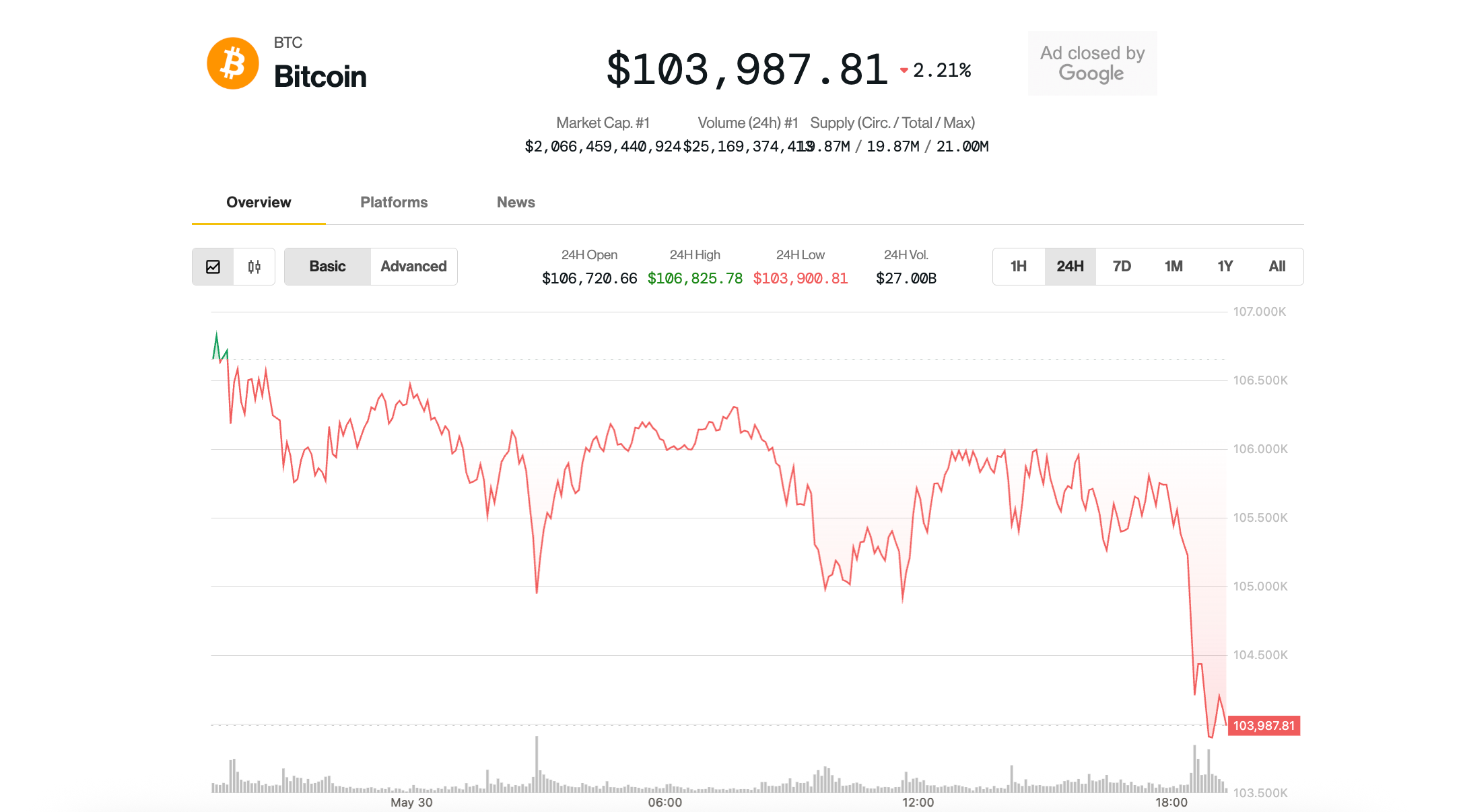Guest Author: Eigenintern (w/ support from EigenLayer Research Team)
In today’s post, let’s uncover some cool ideas and tasks that EigenLayer operators can run and explain how they can quickly bootstrap decentralized open innovation.
First off, what is EigenLayer?
EigenLayer is simple. It creates a job marketplace for the 900,000+ Ethereum operators and beyond (i.e., computers worldwide that run the Ethereum software) to perform more decentralized tasks to earn additional rewards. They will be punished and slashed if they maliciously run the new tasks.
Restaking occurs when stakers delegate their stake to these operators to provide economic security, such that the total slashable stake > benefit of operator corruption.
From that sense, any protocol that needs a set of decentralized computers to perform tasks for them can employ EigenLayer operators (Ethereum operators and computers that opt into running more tasks via EigenLayer) and quickly bootstrap their own set of decentralized networks.
Rollup Services
Rollup services, as the name suggests, serve rollups. Many of the earliest and most straightforward EigenLayer applications are such services.
 Fast Finality
Fast Finality
Instant finality for optimistic and zk rollups
Currently, rollups only support slow modes. For optimistic rollups, it takes seven days for transactions to settle, and for zk rollups, it’s 12 min. This is great, but what if you want to do some fast and atomic trading or actions that require instant settlement and confirmation?
Fast Finality is a system that enables any rollups and L2s to declare that a specific block of transactions can lead to a particular state commitment. This essentially means that whatever you think is settled on the blockchain is actually settled and can be settled almost instantly (otherwise, there will be a lot of money and stake slashed).
With fast finality, rollups can now operate in both fast and slow modes.
In “fast mode,” the nodes in this layer can instantaneously validate confirmations, ensuring economic certainty if the majority agrees. When we switched to “slow mode,” confirmations went through a challenge period, which is used when there are suspicions of malicious behavior.
 Reorg Resistance
Reorg Resistance
Gaining reorg-resistant properties for chains and networks through EigenLayer economic security
Enhancing blockchain security against reorganizations (Reorgs) by leveraging Ethereum’s economic trust. Utilizing a lightweight client, Ethereum operators confirm the block header of the latest finalized block has not been double-signed.
The new transaction confirmation rule requires finalization by the chain and an attestation from Eigenlayer stakeholders. Obtaining reorg resistance from Ethereum hinges on establishing economic trust through EigenLayer.
Applied Cryptography
You can build many cryptographic primitives and networks – ZK, MPC, TEEs, FHE, etc – with EigenLayer operators.
 Shamir Secret Sharing
Shamir Secret Sharing
Splitting a secret for many decentralized Eigen nodes to store and only releasing it under specific conditions
Shamir Secret Sharing helps users split secrets into multiple parties and only release them when a condition is met. This can be achieved using EigenLayer node operators who commit to storing secrets, and they can be slashed if they do not release the secret when the condition is met.
 TEE Committees
TEE Committees
System only compromised if a significant # of TEE nodes are compromised, drastically decreasing trust assumptions
Currently, some protocols are exploring using TEE (Trusted Execution Environments) as an alternative way to guarantee some computation, such as running private auctions or ensuring some data is tamperproof.
Protocols can enhance their security by leveraging TEEs and constructing a decentralized TEE network, known as TEE Committees, through EigenLayer.
The combination of TEE and committees strictly improves the reliability of any committee without TEE, demanding both majority collusion with the committee and a breach of the TEE’s security model to compromise the system. Multiple TEE models, such as Intel SGX, ARM TrustZone, and Amazon Nitro, can be required within the TEE Committee, mandating sign-offs from each model. EigenLayer provides decentralized trust, while economic trust can be borrowed when slashing is possible.
TEE committees also offer privacy, making them suitable for scenarios requiring program integrity and privacy simultaneously.
 Optimistic ZK and Naysayer Proofs
Optimistic ZK and Naysayer Proofs
Stay optimistic most of the time, and only run zk when fraud is detected
Naysayer proofs introduce an innovative approach to handling proofs on-chain, prioritizing efficiency and cost-effectiveness. In this system, proofs are initially accepted optimistically without immediate on-chain verification, with the assumption that parties known as “naysayers” will only interact with the proofs when they identify errors. A downside of naysayer proofs is that they must operate in a stronger model since it requires assumption, synchrony, censorship resistance, and at least one honest party.
However, Naysayer proofs are particularly well-suited for proof systems with repetitive structures or multi-round applications and find application in FRI polynomial commitment opening proofs, post-quantum secure digital signature schemes, and verifiable shuffles.
Finally, they differ from fraud proofs in that they focus on identifying disagreements in the verifier’s circuit evaluation, making them significantly more efficient.
Decentralized Offchain Infrastructure
You can bootstrap any general decentralized network with EigenLayer.
 Circuit Breakers
Circuit Breakers
Network of nodes that watch over malicious transactions and act on them
Most applications have a circuit breaker built-in, named differently depending on the protocol, but in principle, it’s the ability to pause an entire protocol or disable specific functions. When considering this concept, imagine if this responsibility could be offloaded to Ethereum validators. The network of nodes would then monitor this circuit breaker feature, and if the protocol misbehaved—paused too late or paused when it’s not appropriate to do so—it could be slashed.
Utilizing Ethereum’s trust network to supervise the protocol, encouraging good behavior while discouraging bad behavior.
 Decentralized RPC
Decentralized RPC
To ensure that the RPC system is not compromised and send in false data, create a decentralized node network that not only manages RPC services but also appends a signature to its responses, ensured by economic security
There is an inherent Reliance on RPC services like Alchemy and Infura, where the data provided is presumed to be accurate and trustworthy. However, these services are not infallible, and there is always a small risk of compromised or false data.
Decentralized RPC is an AVS design that would not only manage these services but also affirm signatures, adding an additional layer of accountability. It would enforce trust by identifying any discrepancies or data errors and holding the relevant parties accountable.
MEV Management
Essentially describes having Ethereum proposers making additional promises on how they get to construct, produce, and order blocks. Beyond Ethereum proposers, you can get any actors in the MEV pipeline to make these additional promises.
 Slot Auctions
Slot Auctions
Allowing the next 32 public validators to auction their own slot ahead of time
Checkpoints play a crucial role in enhancing the security and efficiency of Ethereum’s PoS system. They help to prevent attacks, reduce data storage requirements for validators, and ensure the security and stability of Ethereum’s history. Enter slot auctions, a concept where the next selection of upcoming validators can auction their slots beforehand.
During each checkpoint period, the next selection of upcoming validators is disclosed to the public, and each of these validators could auction their own slot ahead of time, eliminating the need to go through MEV-Boost during its proposer slot.
This approach would provide traders with improved executions across various time periods and contribute to more effective management of execution risks. The implementation would involve validator commitments, both off-chain and on-chain, with the possibility of slashing.
 Threshold Encryption
Threshold Encryption
Protection against targeted frontrunning in sandwich attacks
Threshold cryptography offers a potential solution for applications that protect against targeted front-running and enhance on-chain privacy. The core concept involves using an encrypted message as an example, where at least k out of n signers can solve the decryption, but anything fewer than k cannot do so.
The requirement is that k must be large, and a decentralized signer set is needed to mitigate both collusion and liveness attacks. This decentralized set of nodes can be inherited from EigenLayer.
Co-Processors
Actions you can compute and perform off-chain to expand the scope of what the main computer (Ethereum) can run, and run these tasks more efficiently but still in a provable, trust-minimized way.
 Achieving Program Integrity & Session Privacy for AI Inference
Achieving Program Integrity & Session Privacy for AI Inference
More cost-effective than ZKML
In the current AI landscape, only a few centralized entities are running AI inference engines. Consequently, there are strong motivations to leverage EigenLayer for on-chain AI inferences:
Improving the cost-effectiveness and computational integrity of AI operations by offering an alternative to centralized servers, like AWS, using zero-knowledge (ZK) techniques for Machine Learning (ML).
Enhancing privacy through a mechanism that allows operators running AI engines to decrypt consumer queries only if many operators collude. This approach aligns with the decentralization principle inherited from the Ethereum trust network.
Summary
We touched on a few large categories you can build on EigenLayer: rollup services, threshold cryptography, decentralized off-chain infrastructure, MEV management, and co-processors.
You can think beyond these basic categories into more interesting and wild ideas – decentralized power grids, data labeling (e.g., tokenized captcha), decentralized frontends – because any tasks you need for multiple computers to run with some credible guarantees, you can run with EigenLayer.
If you would like to learn more about these ideas, please visit the official EigenLayer website and their research.
Read More: www.bankless.com









 Bitcoin
Bitcoin  Ethereum
Ethereum  Tether
Tether  XRP
XRP  Solana
Solana  USDC
USDC  Dogecoin
Dogecoin  TRON
TRON  Cardano
Cardano  Lido Staked Ether
Lido Staked Ether  Wrapped Bitcoin
Wrapped Bitcoin  Hyperliquid
Hyperliquid  Wrapped stETH
Wrapped stETH  Sui
Sui  Chainlink
Chainlink  Avalanche
Avalanche  Stellar
Stellar  Bitcoin Cash
Bitcoin Cash  LEO Token
LEO Token  Toncoin
Toncoin  Shiba Inu
Shiba Inu  USDS
USDS  Hedera
Hedera  WETH
WETH  Litecoin
Litecoin  Wrapped eETH
Wrapped eETH  Polkadot
Polkadot  Binance Bridged USDT (BNB Smart Chain)
Binance Bridged USDT (BNB Smart Chain)  Monero
Monero  Bitget Token
Bitget Token  Ethena USDe
Ethena USDe  Pepe
Pepe  Pi Network
Pi Network  Coinbase Wrapped BTC
Coinbase Wrapped BTC  WhiteBIT Coin
WhiteBIT Coin  Dai
Dai  Aave
Aave  Uniswap
Uniswap  Bittensor
Bittensor  Cronos
Cronos  Ethena Staked USDe
Ethena Staked USDe  OKB
OKB  NEAR Protocol
NEAR Protocol  Aptos
Aptos  Jito Staked SOL
Jito Staked SOL  BlackRock USD Institutional Digital Liquidity Fund
BlackRock USD Institutional Digital Liquidity Fund  Tokenize Xchange
Tokenize Xchange  Ondo
Ondo  Internet Computer
Internet Computer